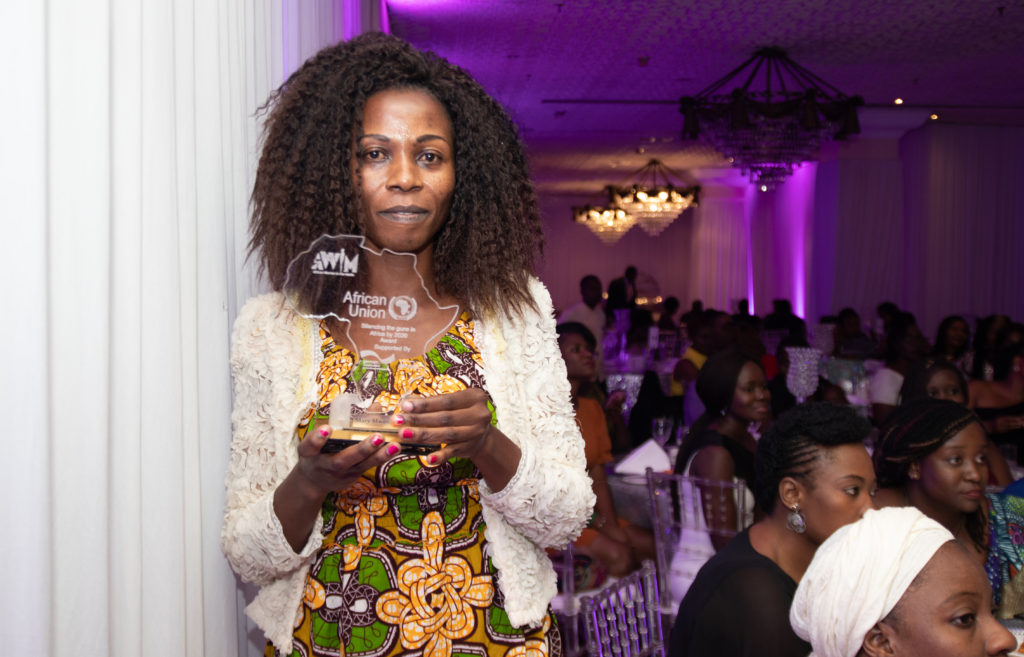Mary Mwendwa, a Journalist with a background in science tells us why she pitched her award-winning story at the AWIM19 pitch zone and tells us why she tells stories from a place of depth and passion.
Please tell us about yourself
I am a freelance journalist and editor for an online publication called…www.talkafrica.co.ke ( Talkafrica) owned by the Association of Freelance Journalists in Kenya ( AFJ). I am also the co-founder of AFJ. I write on areas of health, gender, environment and agriculture. My stories have been published in Aljazeera, Newdeeply, The standard, talkafrica among many other publications across the globe. I have over ten years of experience in journalism in both radio and print/online.
You are a Journalist/Editor with a background in science. You also write about gender and health issues among other topics. Tell us how you are able to separate emotions while processing information and reporting stories.
Let me start by saying that first I am human and more so a mother. When doing emotional stories the human part of me will never be ignored. However, that said every situation in a story comes in different ways. I always weigh the situation and purpose to tell the story just the way it is. Some stories I cry, I get traumatized but I usually understand that it is natural to feel so because I am human first . That said even if I cry during a story situation, I always do it. Stories on sexual gender-based violence among minors have been some of the most depressing.
Who gave you your first opportunity to flourish?
I started my career as a radio presenter/ producer and after some years I decided to quit and start writing articles. Many people have been part of this journey. I will name a few. Caleb Atemi, former Editor, Nation media group Kenya, Omwa Ombara and Carol Oyugi among many others. They believed in me and always encouraged me that one day I will be a good writer. They are still my mentors in writing to date.
How important is data to journalism?
Data journalism is important in reporting because of its availability of facts that people can relate with. The data, figures, visuals in form of maps, graphs etc, kill the boredom of sentences that at times people get bored to read when they are too long and time-consuming. Data journalism helps put governments in check when doing governance and accountability stories. This is just one of the many examples that data journalism can do.
Please share the relationship between your background, nationality and choice of stories
My science background in reporting and my nationality has helped me a lot in my line of reporting. In Africa, for example, there are issues to do with service delivery. One of the sectors that have been largely affected is the health sector. As governments, especially Kenya, strive to achieve universal health coverage, many people still cannot access quality health care. Corruption has also led to this poor service delivery. Now, every time I do a story there is always a science angle in it. Science is life!

Mary holds up her plaque after winning an award for her brilliant pitch at AWIM19.
You won an award for pitching your story during the AWIM19 Conference. Can you share the story behind your story (why you pitched your topic) and what this means for your professional journey?
I won the silencing guns by 2020 story pitch because of the idea of the role women play in Violent extremism. I realized that women play a role in promoting and also helping to reduce violent extremism in society and this is always ignored. There are women who have joined the groups and there are women through support groups who are fighting extremism. This noble work is always ignored and therefore I thought it would be nice for it to be documented. This story will be an eye-opener to the policy interventions in terms of fighting violent extremism. In fact the recent killings in Somalia where a journalist was killed, the suicide bomber was a woman. There have been many instances across the world where women have been used as suicide bombers.
If you had your way, what policy would you push and what result do you hope to get out of it?
If I had my way the policy I would push for is to have an efficient and quality health system in my country, where the poor will not suffer but access quality health care. Also to see the Abuja declaration being implemented.
What were your expectations before AWIM19 and how have these expectations been met?
My expectations before AWIM was to network and get to showcase my talent at the conference. This was met when I shared my pitch and won.
Where do you see yourself in the next five years?
In the next 5 years, I see myself as one of the best investigative journalists in Africa. A name that people can look for when they want a human interest story that is science-related.
Final words
Journalism is a calling and service to humanity, no amount of pay can be equated to the work done by journalists.




One Response
The biography so inspirational and highly educative.
Thank you for being there for the young talented journalists.
May God see you through as you strive to attain the legal, professional and ethical issues associated with journalism challenges.
Strive hard we all rally behind you.